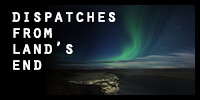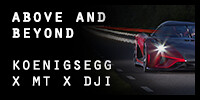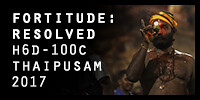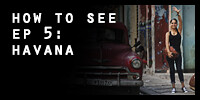We haven’t done one of these in a while: I’ll answer any reader submitted questions in a forthcoming future post; anything you wanted to know about photography, creativity or the business of it – just leave a comment below, or shoot me an email. Please do use the search function first, though – your answer might otherwise be in the form of a link to one of the ~1,800 or so previous posts. If there are too many questions, I’ll pick the most interesting 🙂 MT
Edit: thanks for the questions so far; please keep them coming!
Comments closed as of 31 Jan 2020. Answers here, here and here.





Do one really need to do the Zone System with a 1 degree handheld Light meter to do Black & White fine art photography?
Cheers!
No.
Can you define ‘cinematic’ in the sense in which you use it? I’ve never quite understood what is meant. Thanks.
Do you feel like different cities have a ‘color’ that best represents them?
Not really…a mood, perhaps, and maybe that translates into a color?
“Your Mission if you choose to accept it”…
I thinking of writing an essay entitled “My Last Camera”. If it ran to book length, I was musing that “Brother Camera, Sister Lens: GAS in the Rear View Mirror” might work. Someday, hopefully many healthy years from now, your own feet will overlook a similar precipice. If you knew that 2020 would be the last year you could buy a FF DSLR or Mirrorless Camera and any 3 lenses what would you reach for. Further, where might your travel for two months and what types of images might you hope to capture that would best express who you were before…..
Has Robin Wong quietly ridden off into the sunset?
hi Ming Thein, i have been visiting a few Filmmaking websites for the past two years. i was wondering, what in your opinion is the difference between Cinema lenses and Photography lenses as many photography lenses, e.g. Canon EF lenses are being used for Filmmaking as the EF mount has been adopted by certain Cinema Camera manufacturers. i observed that some Cinema lenses from Cooke and Leica and Zeiss cost in the tens of thousands. is there something significantly different in their design and construction that allows them to command such prices? also, would you have any experience with them and any comments about them – the most affordable of them (brand name Cinema lenses) would probably come from Canon and can also presumably be used for photography. besides doing photography, i have picked up doing video as a hobby and have noticed a convergence of some of the equipment.
You always seem to strive for using the most optically „perfect“ lenses. What is your opinion on older designs that are not technically and optically up to scratch? Do you see just flaws or do you see character in the way these lenses render?
What have you learned from watch design that you can apply in your photography?
would like to know once and for all if Zeiss Milvus and Otus are really that incredible and worth the price (e.g. Milvus 35mm 1.4). Specially since Z lens arrived. Thanks
Will there be more updates to the CAMERAPEDIA section?
How does a photographer in 2020 market themselves to potential clients? Ive found direct emailing gets ignored, word of mouth has got me some clients, but finding more is a real challenge here in the UK.
1. Since a large part of your audience is in the USA or Europe, please share some links to your favorite Asian photographers doing interesting work that most of us are unaware of. Maybe something other than street work, which has run its course IMHO.
2. Which will be the next camera company to exit the marketplace?
3. What is your impression of the still unseen Zeiss ZX1 with its modified Android OS? Will an Asian camera company ever open up it’s UI? For that matter will they ever hire good UI designers at least once!?
4. Please share any “back of napkin” sketches of cameras you’d like to see. I have ideas too, I think having an open UI would be fantastic, we could share or sell our own versions…. imagine buttons with programable text, etc.
5. Why is it that Canikony can make an expensive pro camera for a few thousand sports photographers and not make a decent but reasonable small pancake lens for few hundred thousand serious amateur photographers?
Ming, over the whole of your photographic career (not just professional) when you you feel you were happiest, and why?
Ming,
I might have asked you before, but I’ll try again as this subject still puzzles me. What should I do to achieve natural skin colours in my portraits? I have a Spyder Color Checker and make a manual white balance reading before I shoot, but the skin colours are still often slightly wrong.
Shooting black & white is nice, but editors of newspapers/magazines usually prefer colour portraits.
What’s the deadline for submitting questions/thinking up a really juicy one?
Let’s say by end of Friday this week 🙂
Is there still a genre of photography (except wedding) where one can earn a living? 🙂
Assume you have a serious hobbyist photographer with quite a bit of gear and funds are not an issue. If artistic development is his priority, what would you recommend re: cadence of buying new gear that’s nice-to-have but not necessary (e.g., a second, but different, model of lens in a similar focal length is “nice-to-have”; whereas a new focal length is “necessary”)? When is buying new gear harmful to artistic development? When is it beneficial? Asking for a “friend,” who may or may not be looking to justify his GAS 🙂
Everybody here in the UK now seems to shoot weddings in a documentary style, using only primes and available light.If you photographed a wedding would you be a prime man and what focal lengths? I would love to see a “cinematic wedding”
Why do you prefer Photoshop to Lightroom? You wrote about it, some times ago, and I can’t find your post. The real question is: will you ever do a Master Technique and Workflow about Lightroom? Thanks!
I always shoot in color even though my camera does have a black and white mode. For street photography 99% of the time I convert my keepers to B&W. At times I will also convert candid portraits of family members or friends to B&W.
The only reason I convert any photo to B&W is because it isolates the subject better than the color version. Okay, I’ll admit I will sometimes try to save a photo with severely blown highlights by converting to B&W. When it works (rarely) it usually only works good enough to save a family photo that, for various reasons, I did not want to delete. But that’s an altogether different issue.
My two related question are:
Do you intentionally shoot in B&W or do you shoot color and convert and, more importantly, does it matter? That is, if you know you your final product is going to be B&W should you shoot in that mode because you will get better results or just to save processing time?
Is there anything one should do differently when shooting B&W versus color? I assume basic camera operations are the same but is there a different mind set or way of looking at the subject or surroundings that one should take into account?
Curious on your thoughts re: documentary photography. Specifically, what is the future of documentary photography? Does anyone even care? And what will be the role of photojournalism in an age of smartphones and link-bait listicles?
Cameras are getting more and more sophisticated and the menues are getting longer. What are your hopes for the next 10 years regarding technology? How can it best support creativity?
You don’t seem to use prime lenses much anymore. With the quality of modern zooms, do you think their day is dwindling?
Have/do you use an incident and/or spot light meter? If you do, what brand/model do you prefer?
Are the Zeiss Otus line of lenses still the benchmark for 35mm today?
What do you think of photography as a type of immortality project (Becker-Denial of Death)?
I’d like to understand your exposure compensation considerations as you spot meter a scene and why you don’t just judge your exposure by looking at live view.
Where’s the review of the A7R4? Joking! 😀
Seriously, how have you improved your photography over the last 10(?) years? In the sense of both:
– A) what have you done to improve, any tips / practices you’d like to share to improve over the long term? How do you maintain and improve the quality of your photos across very different projects, whilst still experimenting with new things and not getting stuck in a rut?
– And then also B) how do you feel about the trend in your own skills over the years? E.g. Do you feel that you’ve steadily improved every year, or that it’s gone in fits and starts? Have you ever felt like you’ve reached a plateau? Did you learn more from paid projects, or personal experimentation? Etc.
No pressure to answer anything you don’t want to but any thoughts on this would be really interesting because there are not many photographers who post the breadth of photos that you do over a long period of time – most either seem to come and go, or stick very conservatively to the same areas.
And happy new year – both for 2020 and for the Year of the Rat!
When are you going to review…..no, just kidding!
Since you started to practice photography (you can choose to define that as “as an amateur” or “as a working photographer”), what do you think has been a) the single best thing to happen to photography, and b) the single worst thing – and, in both cases, why? (The answers don’t have to be limited to directly related technological factors – they can be anything at all).
A crystal ball question! Given the ongoing evolution of the camera industry, where do you see it being in 5 years’ time, which manufacturers are likely to survive and which are in danger of failing?
I would like some comments as to what you feel about the Nikon Z7, the adapters for it, and the S lenses, so far, including the Nikon Noct 0.95 if you have had a chance to use it. And what does the road ahead look like for this larger flange camera?
1. Is there something you have learned from the world of small scale watch manufacture that you think the photography manufacturing industry could adopt?
2. What are your thoughts on the Ultraprint in 2020? Has anything changed in how you see this or feel about it compared with 2013?
3. Now that MING Watches demands much of your time, and perhaps also for issues of weight-carrying and comfort generally, has your enthusiasm for small-light-simple continued in 2019 and do you see that continuing in 2020?
4. We are at the beginning of a new decade. Is there something, some technological possibility, or quality-price possibility, hardware or software that excites you or gives room for optimism as we look to the decade ahead?
Any of these that strike your fancy really 😉
What is something that you are grateful to have learned early on in photography and how do you think your intent as an artist/photographer has shifted over time (interpret as you will). Hope you’re doing well and hope to catch up soon!
Please give us some tips on curation and visual language and story telling!
Id love to hear your response to this one!